European Letters, by T.W. Patton to
The Asheville Citizen:
Description of the Tour of
the North Carolina Teachers, During the Summer of 1889
SWITZERLAND. [pages 4553] |
|
*Note: Copy has been re-formatted. Original two column format has been
abandoned and special fonts have been standardized.
|
| Pages # |
I.D.# |
Description |
Thumbnail |
| |
eur045 |
HIGH summit,
August 10th, 1889.
dear ciTizen: —
Our last to you described
a stop over at Baden-Baden, leaving
which place we flew swiftly over a
mountain railway,
reminding us of our own fine W. N. C., with its tracks running
in all directions and one above another; only here the sharp curves are
not made at the head of a valley, as with us, but almost always
in the very heart of the mountain itself. So that repeatedly
we would dash into a tunnel with the
sun on our right and emerge with it on the
opposite side, showing a complete
change in direction. This steep ascent continued for many miles,
probably rising some of the foothills of the mighty Alps, and we
then emerge upon a beautiful upland
plain, so gently undulating
that one forgets its altitude, dotted with little villages
in which the heavy overhanging roofs and curiously constructed
houses tell us that we are in
Switzerland.
Some hours' travel over
this kind of country brings us back to the banks of
the Rhine, not so peaceful as we
knew it before, but affording
some beautiful cascades in which the peculiar hue of its
water is made more manifest.
Really fatigued by the
many beauties we have enjoyed all
day, we decide to rest at Zurich, a pretty little city on a lake
of its own name, and soon restored to our
pristine vigor by an excellent table d'hote at the Hotel Bellevue au Lac, we sally
forth once more and take our stand
upon a bridge spanning a little river and admire the bright full
moon as she silvers the peaceful waters, and listen to sweet
music and singing which is wafted to us
from a neighboring concert garden.
We
hardly feel disposed for bed, but a
few hours' sleep suffice, and after breakfast
we again view the town and return at noon to our favorite position on
the
bridge, gazing down into the depth of
waters and wonder of what
species are the numerous strange looking fish that
are darting about so happily.
Indeed, what can prevent
happiness, whether to fishes
or men, in this place. We have always
heard (and experienced) that, happiness attended godliness, and that
godliness was next to cleanliness, and so we note with pleasure the
bathing establishment near
by, abundantly patronized,
where for the small sum of
twenty-five centimes (or
one nickel) we can
enjoy a most charming swim in the
lake and have all the
accessories so essential to
comfort.
Another idea: Why not try
a scheme like this on our French
Broad, and encourage our
people to wash away the dust of ages and to emerge with bodies
pure and minds freed from the thralldom
of conventionalism, fanaticism, Bourbonism and all other isms and intolerances
which so terribly damn our dear friends
and retard every effort toward their elevation and improvement.
At
1.30, leaving sweet Zurich we reach
Zug, on its own lake, in two hours, and
find a steamer awaiting to
convey us across this lovely sheet of
water to Arth. The lake is as
clear and pure as one can
imagine; not translucent as some of the
Florida lakes, but of a silvery
green most peculiar in shade, and the lofty mountains
actually overhang the water.
Chief of these to our eyes is the Rhigi,
which has its rugged sides in full view
and its top crowned by our hotel, to
which we are bound, looming up like a
castle, 5,000 feet above our heads.
Reaching Arth, we take an inclined
railway, as we are told,
but rather we should say a
perpendicular one. In a distance
of four miles we ascend over 5,000
feet, and as the grade is not
continuous we are sure that in
some portions it must ascend
one foot in three. The locomotive follows us and shoves upward with ...
|
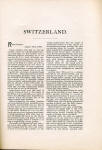 |
| |
eur046 |
... many a puff of distress, catching hold of
the center cogged rail,
and in an hour lands us on the
summit.
The
sides at places most precipitous
are
composed of a most curious conglomerate
; small pebbles in huge masses,
bound together by a material resembling cement, and thus this whole
mountain is
composed. We wished we could transport
it by magic to Buncombe. What a
Godsend it would be. It is the very best material for macadam we
ever saw and could be worked with
greatest ease.
At Poyntz a large expanse
of grazing lands appears, and we are told that immense
quantities of butter and cheese are
here produced.
The forest growth
resembles ours as seen on top of Mitchell, Craggy or the
Roan—dense balsam, spruce, and an
undergrowth of rowan,
enlivening all around it with its bright red berries.
On top we enjoy a
magnificent view. Five lakes
surround the Rhigi's base, the
largest the Zug and Lucerne, on
opposite sides, each with its
own little city, while afar the lofty peaks of the Alps tower
toward heaven, their tops and sides
white with eternal snows,
adorning them as silver locks
do lovely old age. But again
we are reminded of our own
mountains by the descending mist shutting out all chance of sunset, and
then clearing away to show the peaceful full
moon glimmering on the lakes, but
only to disappoint tis again about the long
hoped for sunrise. This morning we
are, as it were, in a pall,
and can scarcely see a hundred feet around us. So we hasten down on the opposite side
by another railway to seek Lucerne,
whence you will hear from us
anon.
Lucerne, switzerland,
August
12, 1889.
Editor Citizen :—After mailing our last
letter to you we left the
summit of the Righi, shrouded in
mist and drizzling rain, and
ourselves shivering with cold, notwithstanding our heaviest wraps
closely buttoned around us, and took another
railroad, still more steep and
wonderful than that which we attempted to describe.
In
a half hour we had descended probably 1,500 feet, and emerging from the
oppressive
pall of clouds, were greeted once
more by a sunshine such as only
land with its lakes and
mountains can provide, adding a
wonderful brilliancy to the beautiful world, still 3,000 feet beneath
us.
In
one hour more the whole descent is
accomplished, and we, so lately complaining
of cold, have promptly discarded
our surtout and are
wandering around the town of Viesnan and, wonderful to
relate, amongst groves of fig trees
in full bearing, and tempting us with their delicious fruit. And such
flowers! Everywhere, on all
sides, in greatest prolusion. What a marvelous change of climate
in two hours !
None of us regretted a
short delay at Viesnan, awaiting our steamer, and it
was both profitably and pleasantly employed. We find the people here courteous and affable, generally speaking a
broken English and very fair French, which soon relieves us of our
embarrassment in Germany. Only too quickly
did
an hour flit away and we are summoned
to the quay, where a charming
steamboat receives us and
gives us such a sail!
Well, our Webster's Unabridged fails to
supply adjectives suited to a description
of
the lake and city of Lucerne. Our best
effort is to say that the former meanders
between the mighty mountains, Rhigi here
and Pilatus there, like a
brilliant riviere of precious
stones, for which its own city,
a Kohinoor indeed, provides the
clasp, as it hangs down the
lovely throat of the river Rheuss, through which the water
rushes toward the Rhine.
On
approaching the city we note a well
built quay extending quite a distance along the water's edge, supporting
a fine
broad walk, shaded by dense rows of
horse chestnut, a tree quite similar to, but
not
identical with, our buckeye, along
which throngs of happ3r tourists are
strolling.
Here again we observe, as
at all other points in Europe, the
plainness of the dressing.
They seem to abjure for a while the tawdry finery one sees on all
hands at Saratoga, and to come here
for a better purpose than to
make display of their fine clothes and wealth of shoddiness.
Nor indeed is it strange, for who
can find time to think of more than nature and
art have here spread out to their
view ?
On
one side a row of elegant hotels, on ... |
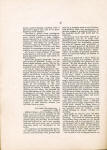 |
| |
eur047 |
...
the other the peaceful glimmer of the calm
water, on which happy boys
and girls are rowing, vicing in joy
with the innumerable fishes
which are sporting beneath the surface.
Not
fearing the crowd because still
provided with Cook's
coupons, we are soon ensconced at his own hotel "Le
Cigne," (The Swan"), and enjoying a
good lunch preparatory to a
further ramble.
The
lunch is soon over, for who will
stay indoors longer than the stern requirements
of food and drink demand,
and out we go, straggling
along, open eyed, open mouthed, open
eared, seeing, tasting,
hearing new and delicious things at every step; aye, and we hope
learning, too, certainly being taught that our esteemed
contemporary the E. J. was mistaken when it thought that we had
all the wisdom of the world.
After enjoying a charming
row of ten miles, four people at a
cost of sixty cents, we land again and wend our way to see
the "Lion of Lucerne," a most
wonderful piece of sculpture,
a dying lion of gigantic
size, in length twenty-two feet; and
strangest of all. chiseled out of.
the face of the native rock. A
large niche has been cut into the cliff and in it reposes the
mighty beast, with an air of most wonderful
dignity and grandeur, his proportions so absolutely perfect that one
cannot realize his size
except by pacing in front from his nose to his rump.
This wonderful piece of work is a monument
erected in honor of the Swiss
Guard of Louis XVI, who, being left
without orders, the king having escaped,
faithfully stood to their
arms until the last man fell under
the furious onslaught of the mad mob at the palace of the
Tuilleries.
This inscription is carved in the living
rock under the lion: "Hive stint nomina
coruin qtii ne sncrfimenti
fidcm falcrcnt, fortissimi pugnantes ceciderunt."
Then
follows the names of the brave men.
A
Sunday more Sabbath like we do not remember than was yesterday. Seeing a
notice that an
American church service would be held at the National hotel we
attend it to hear our own dear old
prayers, litany and psalter once more,
and rendered in the simple plain
manner which to us makes it always so attractive.
The clergyman a visitor from New York, Rev. Mr. Kenyon, using his
vacation for his owN health
and for the
benefit and enjoyment of his countrymen,
gives us a good practical sermon, while the large parlor is filled with
people on
each of whom is impressed that independent
character which marks an inheritor
of the States and of which we are so
justly proud.
The clergyman has the wisdom to know
that a few plain words
have more effect than an hour's
tiresome talk, so his good
sermon is ended just as his hearers wished to hear more, and
after a pleasant handshake with some
of our countrymen and a few minutes' chat with some of
our countrywomen, who have no fear
of insult when a strange gentleman speaks
to them, we go out once more to take
in another sermon, as preached by God's
pure air and bright sun and all the
loveliness He has so lavishly bestowed upon
us.
A walk across the breadth
of the little city by a very old bridge spanning the Rhenss, brings us
to the foot of a high precipitous
hill which is capped by a most
attractive building called "The
Gutesh." Of course we are anxious to visit it, but the ascent
daunts us until a nearer approach reveals an inclined railway of most singularly simple design, in
length about 800 feet, and inclined at an angle
of forty-five degrees. One car comes down
as the other goes up,
each being connected to his colaborator by a cable which passes over a pulley at
the top. An arrangement of this
kind we have often seen, but
heretofore always worked by a
steam engine causing the pulley to revolve,
but there is no engine or any other
power here. Each car is provided with
a tank which at the top is supplied with
just enough water to outweigh the
ascending car. Of course the
quantity of water is gauged
according to the number of
passengers in each, and at the bottom
just
enough water is discharged to enable
the trip to be made at best
economy, the passengers
themselves, by their avoirdupois, supplying in part the motive power.
Just at this point of our description of
our railroad, we were interrupted, as
the time had arrived to
ascend another, even more curious in construction and
operation. We refer to that climbing
the ... |
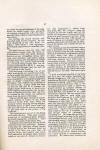 |
| |
eur048 |
...
rugged cliffs from the shore of Lake Lucerne to the Stortnnooti summit
of
Mount Hilatns. This road only opened
to the public in June
last, presents undoubtedly the most
wonderful achievement of engineering skill yet exhibited. In a distance
of five thousand yards, an ascent is accomplished of 5,344 feet, an
average of more than one foot in three,
the maximum being 48 in 100.
It was really frightful to
look over the cliff's side, to which
we were actually clinging,
because the locomotive clamped the rail, which was bolted to the
steel crossties, they being bolted to the solid
rock.
One of the most singular features, is
the entire difference in geological formation
between the two mountains or opposite sides of the little lake. To the
east Rhigi, a mass of sea worn pebbles, while on the west Piiatus with
not an evidence of antediluvian material, but a
huge mass of limestone. We presume
this material was not considered sufficiently
durable or tenacious to trust with the railway, and therefore
from bottom to top the roadbed was excavated and filled in with granite
slabs transported from distant
quarries of Italy. To these massive slabs, dovetailed each into
the limestone, the crossties are secured by
iron bolts, four to each, of two
inches in diameter.
The motive power is new
and most unique. The engine and cars
are connected, with only two axles for both, and
the powerful engine produces motion
through the medium of two cogged
wheels which engage the vertical cogs
on each side of the central
rail. It will be understood from this that the motor
wheels revolve horizontally, or as
nearly
so as the steep grade will admit. The
sight ot this wonderful
work repays us fully for the
expedition although our usual fortune attends and the top is
shrouded in clouds and no view of
the distant Alps, but the near scenes are at
times wonderfully striking and the
rugged storm seared rocks
most impressive. The height above the sea level is seven
thousand feet.
It is now time to begin
our drop towards the lower regions,
which we hope will not extend
so far as the theologians think, but afford us an opportunity to
give you and your readers a little more
before mailing this at Lucerne.
How delightful in a
foreign land to meet dear friends
from home! This was our good fortune on our first arrival at
Lucerne, and what a cordial hand
shake we received from
friends, whom we did not know were in Europe, towit: Mr. Ed.
C. Smith, of Raleigh;
Messrs. B.C. Ernpie
and D. M. Williams, of Wilmington; Messrs. E. T. Martin
and S. T. Bamett, of
Birmingham, Ala.
These gentlemen are traveling together and have made a delightful tour
of north Italy and
are now reversing our tracks going down the Rhine instead of up as
we did. Other members of their
party, who are now separated but expect a reunion
at Heidelberg, are Mr. Pembroke
Jones, wife and two children,
of Wilmington; Mr. H.
Walters, of the Atlantic
Coast Line; Mr. Fred Kidder, of Wilmington. Although they
crossed by a much more expensive line of steamers,
they give the same account as ours
of bad fare, discomfort and
rudeness of stewards during
the passage, but like us have thoroughly enjoyed every moment
since they landed on this side.
Good-bye.
|
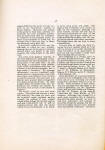 |
| |
eur049 |
interlaken,
August 14, 1889.
dear citizen
:—This little Swiss town
is
as its name implies located midway between
the lakes (here called mer-seas) of
Brienz and Thun, upon a
level strip of land some two miles in length and one-fourth of a mile in
breadth, each side of •which is shut
closely in by rugged mountains
of lime rock chiefly, but in part covered
with splendid forest of beech, fir, etc., again reproducing many
old acquaintances, while above them
at one point tower the brilliant snow covered peaks of
"Jungfrau," here pronounced "young frow," and meaning "new wife."
A walk to the top of a
little foothill affords us a most
wonderfully lovely view on all sides. To the east and west the
sweet calm lakes, connected by a silver thread, the river Arne, winding
its way between the shade trees and
houses of the town at our feet, the broadest portion of
the valley spread out for
cultivation, and thoroughly
cultivated, rich in green grass,
ripe grain, orchards of apples,
pears, figs, all interspersed with the richest flowers
of many varieties, while one has
only to raise his eye from
this scene, almost tropical,
to catch a sight of the rough mountain of rock, overcapped by
one a little more distant, perfectly white, except as
the fleeting clouds intervene and
transform the sun's rays into the most brilliant prismatic
colors, each of which can be distinctly traced, as it blends with the
next, and all combining to cover the
snow with innumerable bows ot
promise; promising us that
there shall be no more flood, which is most refreshing, as each
day since our arrival in Switzerland we
have had our spirits dampened by a
pouring rain, and only at moments between
showers have we been vouchsafed such
glories as we attempt to
describe.
Interlaken is a place of much resort for
tourists and chiefly composed of numerous
hotels, many of the buildings modern
and attractive in
appearance, but also presenting one
or two ruins to prove that it rightfully claims a place in the
history of this old land
Let
us give you an expression of one of these sweet Swiss girls, which shows
their pride in
their country: Standing near the
foot of the ancient tower of Unspunnen we asked her its age,
first in English unsuccessfully,
then in our broken
French. "Ah, Monsieur," she replied,
"on ne le pent pas lire
dans les libres,"
which we interpret, "There are no books old enough to tell of its
birth."
In
addition to the hotels we find many
curious stores, or shops, filled beautifully
with wares most charmingly
attractive, especially the wood
carving. Never have we seen anything to compare with it in
variety nor exquisite delicacy of finish,
and all so wonderfully cheap. If we
could only get it home
without the oppressive duty
we could set up a museum of wonders of handicraft. But the horrid
custom house is in the way, and an addition of
40 per cent., to go into Uncle Sam's
already overflowing treasury,
is a decided nuisance.
Whatever we have been heretofore, or may be hereafter, at this moment we
are
a
determined advocate of tariff reform.
Wishing, as we do, to inform ourselves,
not only of the physical peculiarities of this country, but at the same
time of the
personal traits of its inhabitants, we consider
ourselves most fortunate that after
dinner our landlord provides a concert in
the
office of the Hotel Metropole.
Three Swiss, a man and two
girls, in their native dress, give us sweet music, vocal and
instrumental, the latter upon
instruments quite new to us, such as the
xylophone and the cythare [sic], and the
singing consisting of various Tyrolean songs,
which, while the words we cannot
catch, delight our
unprofessional ears with the
simplicity of their melody.
As
has been our universal custom, we
venture an effort at
conversation with those we meet on
every possible occasion and never yet have we met with a rebuff",
and many times are answered by most
delightful ladies and gentlemen. Thus on
yesterday an English clergyman, who
recognized our nationality by
our French, gave us in our native tongue a most interesting
description of many surrounding
points, and added a very curious
statement of the religious condition
of Interlaken. In one church
building, a very old one,
services are held at the same time for the English, for the Roman Catholics,
for the Presbyterians, and for the
French Protestants, and when we expressed surprise that this
state of things could exist and our
pleasure at the good feeling it indicated, our friend replied,
... |
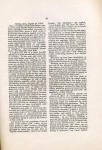 |
| |
eur050 |
"Oh, yes, but how much better it would
be
if we could only join in the same worship;
but that will be when the Master
comes." And truly, we think, as the times grow older and wiser,
and the Episcopal church gains more and more clergy such as this and
Canon Farrar and Heber Newton and Philip Brooks and Dr. Pinckney, and
the Presbyterian such as Dr. Lees,
the time may be prepared for the Master's coming sooner than we
are wont to think possible.
A
review of the past two weeks, our
first experience of the continent of Europe,
brings us to the conclusion, that it
has been the most thoroughly enjoyable
of our lives, although laboring under
many disadvantages, such as
limited time, and not an
overabundance of cash, a very slight knowledge of French, and none of
German, frequent interruptions
of rain, and disappointments of cloud covered mountains, we have made
our way without difficulty,
and have seen wonders, of
which no description can give
an adequate conception.
Without hesitation we urge every young man and woman in North
Carolina,
to begin forthwith to save their pennies, and make such arrangements, as
each can make, to visit Europe.
We
do not recommend a large party,
nor an effort to come on the very lowest
possible expenditure of money. There is no economy in this. The expense
and discomfort of an ocean voyage here and
back, unless accompanied by the pleasures,
and we hope the learning, which we have enjoyed, is both unwise and
extravagant.
Some of our original party, arriving
at Glasgow on July 18, sailed thence on August 9, and for their expense
and seasickness,
had twenty days to do Europe. This we
must think was anything else
than a wise, or economical
expenditure of time and money. Our own allowance of time is far too
short. We have to hasten over
scenes, where we long to
linger, so as to have ten days
left for beautiful Paris, which we
reserve for our last
recollections of Europe.
We
advise those, who have any idea of
coming here, to begin at
once the study under the
Meisterchaft system, of both
French and German. We would certainly
have lost much enjoyment, but for the
little French we are able to
pick up during
our voyage, and would have had
much more pleasure if we had been able
to
know even as much of German. The
system is wonderfully simple, and enables
one, who is willing to study it, an
opportunity quickly to make known his
wants in either language.
We
hope on our return to pursue both, in the distant hope, that we may once
more be able to come, and shall urge
our
young people, at once to form themselves
into classes, for mutual assistance
in
study and speaking.
And
now dear friends, we once more
must say, but with fear and trembling
lest the E.I. may take offence, good
bye.
"
T. W. P.
P.
S.—Do not imagine that what we
see here, for a moment keeps our home folks out of our minds. Our latest
information is of
the burning of Hart & Williamson's
and W. B. Gwyn's houses. We
tender each of these good friends our sincere sympathy, and hope that
the
citizen
was, as ever, foremost in any
appropriate offer of material
assistance. We regret to note
the small amount of insurance
and the heavy loss sustained
by Hart & Williamson and will feel less
sorrow at leaving Europe, in the
hope that on our return it may not be too
late to tender our cooperation in
such steps as we see suggested, to promptly
enable them to resume a business so
valuable to our community.
interlaken, switzeralnd,
August,
1889.
It is interesting to one
whose home is in the loftiest
mountains of the eastern
slope of the United States to compare its
features with those of this land of
the
Alps.
In physical beauty, we
must confess that this country is far in advance of
ours. The mountains, while more lofty, are approached to their
very base by an almost level plain,
varying in dimensions as the
huge masses above jut in upon or recede from it. In this way the
traveler obtains a more adequate
idea of the dizzy heights, and
while enjoying the fruits, flowers and balmy atmosphere of our
dear South, perchance he sees
apparently within reach of his
arm a field of ice and snow, from which innumerable streams
come rushing down, and in their leap
pre- ...
|
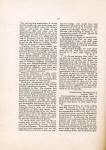 |
| |
eur051 |
sent cataracts of
wonderful beauty and variety, at
times dashing with inconceivable
fury out of the solid rock, through
which the water had worn it way
during ages past, and at others becoming the
most delicate rainbows, making mist
before reaching the bottom.
A
combination of these charms, as seen
through an atmosphere absolutely transparent,
and which fills the lungs with a pure tonic unequaled in our experience, produces an enjoyment far
surpassing anything at home, and
intensified, if such a thing
is possible, by the peaceful rest of
the calm waters of the lakes on all
sides.
After thus trying to give our impressions
of the country, and acknowledging
its superiority in scenery to our own,
we
are happy that we are citizens of a
nation which ensures to all, the lowest as well as the greatest,
political advantages
such as to these poor people are unknown.
In
conversation with a charming Swiss gentleman, (evidently a man of
culture,
because he said "oh, sir, your French is
excellent, but I so seldom have an opportunity
to exercise my English, please
help me to converse in it,") we were led
to
the conclusion, that although Switzerland
is a republic, like our own in many
respects, it is impoverished by the constant
necessity for maintaining a standing
army, to protect its borders in the
event of a Franco-German war, which
our friend seemed to consider as both
possible and probable at an3' moment.
One
effect of this continual drain on the
nation's treasury is the impoverishment of
the people, and we never remember to
have seen such painful evidence of squalid
poverty, as is exhibited among the
peasantry. God defend our good mountaineers
from any approach to it. May
we
never, in America, see as we did yesterday,
a man, a woman and a dog
yoked together to a heavy cart, dragging
it up one of the steep roads heavily
loaded with some luxury for a party of tourists. How little we consider
those around us, or the blessings which should
fill our hearts with gratitude.
Another most pitiful sight, on yesterday. For the first time we set
foot upon a glacier, wonderfully beautiful beyond
all imagination. At one point a grotto
has been excavated, winding
into
the
solid ice probably a distance of 100 feet.
Upon entering, we hear sad, weird music,
and, at its dark
extremity, seated in an icy cavern, pitch dark except for a dim
lamp, a haggard old woman, ninety
years in appearance,
strumming upon her xylophone,
in the hope, often vain, that
the visitor may bestow alms.
Our
heart was touched, indeed, and yet
was
the sympathy sincere ? You may judge, for, when we returned to the light
of
day, we found that the coin we had instinctively
selected to prove our sympathy
was ten centimes, or exactly two
American cents.
Many strange sights! One of the
strangest is to gather sweet, bright
mountain flowers, very similar to those with which Craggy abounds,
within a
marvelously short distance of the "Mer
de Glace." We cannot blame our
friends if they discredit this
statement, and yet we know it to be true. Although the purity of
the air enables us to perform, with
ease, a climb which at home would fatigue and exhaust us, still a
scramble upward of 3,000
perpendicular feet makes us
perspire, and, in a moment, we
enter this grotto, its walls of
crystal ice, its floor covered
ankle deep in small fragments
which surround our feet and slip into our shoes. The sudden
change in temperature is most
startling, and a few moments
suffice, the bright sunshine and
daisies are far preferable, and to
them we hasten to return.
Interlaken could hold us satisfied for a
full month. It abounds in all that is attractive,
walks in all directions, drives to
more distant points, such as Lanterfrunnen,
Trimmelbark, Murrein, Grindelwald,
each of which should have a day,
but with us, all crowded
into one, a lake on either hand inviting to a sail or
row. In short may it be our good
fortune in company with our
loved ones, now far away, to come again to this sweet
spot.
But now we must bid it a lingering
farewell, which is done with real heartache,
and we are on the lake of Thun,
again the poetry of existence. As our
pleasant little steamer gains
distance from the foot hills
of the shore, it affords a panorama, of which no artist can give an idea—and it is not
strange that the attempt has not
been made.
|
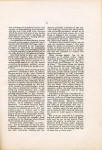 |
| |
eur052 |
A
range of snow clad peaks, of which
the central is Jungfrau,
(they all seem to make obeisance to the sweet "new
wife") extends around one-fourth of
the horizon, and glitter in
the dazzling morning light, while the water underneath us tries
to give a reflection of the charms
above, and sends back the bright hues of
flowers and rocks which bound its
shores.
Our boat glides along too swiftly, stopping at many piers, at each of
which we long to
land and linger, and at the end of n
short two hours, we disembark at the town of Thun, and take our seats •
on an attending train, and at this moment
are flying towards Berne, which, as the capital city, we cannot
pass by, and of our stop will advise
you anon.
berne, switzerland,
August 18, 1889.
Dost thou know it, the dull blue wave
Which bathes the ancient Wall of Chillon ?
Hast thou seen the grand shadow of the
rocks of Arvel
Reflected in that azure sea ?
Knowest thou Naye and its steep crest
And
the toothed ridge of Jamau ?
Hast thou seen them ? Tell me, hast thou
seen them ?
Come here to these scenes, and never leave
them.
A very pleasant rest of
twenty-four hours gives time to visit many points of interest in this
capital city of our sister republic,
and it is found a very attractive
place, combining both old and new.
The streets well paved, and a
fountain of pure water
flowing profusely at many of their
intersections from stands of stone
carved in many grotesque designs.
A
visit to the old cathedral well repays the time it takes. The interior,
impressive
in size but plain to austerity, indicates
its intense Protestantism,
while outside there remain many
sculptures, probably placed there under its Catholic builders.
These present most quaint and almost
grotesque ideas of its architect. A group of figures over the
door illustrates the parable of the sheep and goats, and the
distressed countenances of the
latter, especially of one
terrible roue who the devil has firmly in his iron tongs,
ready for a roast, are most ludicrously pathetic;
while the happy sheep actually do
seem
rejoiced at the contemplation of the misery of those who were so lately
their
friends and neighbors.
This strange idea is again strongly
presented by the life size figures of the
Ten
Virgins. The five wise, with burning lamps v:ew with the
complaisance of
Pharisees the distressed countenances of
their weeping sisters, as
with empty oil cans and extinguished lamps they turn
sadly away.
The chief characteristic of Berne is its
devotion to bears. The legend is that its
founder was almost killed by one of these
fierce animals, and in gratitude for his
escape named his city Berne, or The Bear,
and so Bruin seems to be
the tutelary saint of the Bernese.
His burly form, in all
strange positions, meet you at every
turn, and in a huge pit six of these
creatures are pampered at
the city's cost.
A very strange old clock
is another of the sights of Berne, and it is curious to
see the crowds of tourists filling
the narrow street and
craning their necks to see its strange developments as each hour
approaches.
The
public buildings are handsome and
well appointed, and near by a terrace affords an extended prospect of
snow
clad peaks, from which we can scarcely
tear ourselves away, but linger long after
the setting sun has
withdrawn its glorious light. A tablet, presenting a very
faithful view, gives the name and
height of each, from which we
copy the most prominent to help our remembrance of
this glorious scene:
METRES. FEET.
Wetterhorn .......................3,703 12,343
Berglistock........................3,657 12,190
Schreckhorn ......................4,080 13,600
Finsteraarhorn .................4,275 14,250
Eiger.................................3,975 13,250
Monch...............................4,105 13,683
JungFrau..........................4,166 13,886
Sillerhorn ..........................3,705 12,350
Breithorn ..........................3,784 12,613
Gspaltenhorn ....................3,436 11,453
Morgenhorn......................3,625 12,083
WeisseFrau.......................3,661 12,203
Blumlisalphorn .................3,670 12,233
N. B.—The first figures are metres,
which are calculated at 3% feet each. We
are not sure this is correct. |
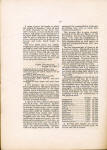 |
| |
eur053 |
guon, switzerland,
August
18.
If
the expression "an earthly paradise" ever suited a spot in this world,
this is
the one. Imagine us this peaceful Sunday
afternoon at sunset, seated on a terrace
surrounded by flowers, rich and glorious,
spears of gladioli, of all shades, in
endless profusion, heliotrope filling the
air with its delightful fragrance, a charming
hotel inviting us to its "table d.'hote," but even our hunger
must go unappeased,
so long as daylight permits, us to
turn our eyes, rapturously above, below
us, around us, to rest upon this
sweet garden, and the pleasant
people, old and young, all
full of happiness and enjoyment; above us at the towering, snow
clad Alps, striving to pierce the
heavens, and see whether even there .anything
can be found .more pure and white than itself; below us at the
calm breast of the lake o£ Leman
of which Byron,
wrote
"Lake Leman lies by
Chillon's walls
A thousand feet in depth below."
And
from the lovely shore of which we
have just been elevated probably
two.
thousand perpendicular feet, without effort
on our part, by the help .of
one of those curious inclined,, water-worked railways, such as we
described, at Lucerne.
These ingenious contrivances are here
called "furniculaires," and seem, very
popular, as they are certainly well adapted
to make the climb of these dizzy, precipitous
mountains.
Our
quotation .from Byron reminds us
to say, that we have
visited the. famous castle of Chillon,
on whose .''snow white
battlement" we can look at this moment, standing boldly out into
the lake, and set off by the dark
forests of Mount; Arvel,
whose cliffs seem to overhang,,; and threaten the .cruel old prison with
the destruction its horrors
deserve.
The awful, scenes .here .enacted were
brought vividly to mind,
as we counted the seven columns of
stone in the dungeon,
"And in, each pillar there is a ring :
And in each .ring there is a chain,
That iron Is a cankering
thing , For in these limbs its teeth remain and as we trod over the
graves of the two brothers, our
heart was opened afresh for
the lonely survivor, whom in
fancy we could see.
"And it was liberty to
stride Along, ray cell from aide to
side. And up and down and then athwart And tread it over every
part, And round the pillars one by
one Returning where my walk begun."
Wonderful mankind to, select a spot so blessed of God, to perpetrate the
'atrocities
that these walls have witnessed, and
strange incongruity, within a few feet of
this horrible dungeon, we find a chapel,
in
which no doubt during the very moments
of the poor prisoner's anguish, his tormentors were engaged in offering
worship to Him,
whose mission was to bring "peace,
good will towards men."
After deciding each hour for the past two weeks, that the place in which
we
were at that moment, was the most beautiful
on earth, once more we must revoke
all
that we have heretofore written, and
say that now we know that none can be
so
perfect as this spot, and no sail so
thoroughly charming as
that of today, on the lake of Leman
from the town of Lausanne, to
Chillon.
The
color of the water is changed from
the strange green we have before noted,and
instead is a most delicate shade of
blue. The shores are lined with villages filled with delighted tourists.
Numerous
swans are gracefully floating around,
and coming almost to the steamer's side.
Nor are they alone in enjoying a swim,
but hundreds of boys are
shouting with delight, as they
plunge from the banks and rise
far from the shore, looking more like frogs than anything else we can
think of.
Oh! that we could only have all of our old North State friends with us,
and
a
whole summer to stay amid these delights,
but time flies indeed and tomorrow
we must hasten to Geneva, for
which we have only one day left, and
then to Paris.
If
we have persecuted you to this extent,
before reaching the great exposition
which wasthe chief object of our journey, what may you anticipate of
evil when we do arrive there? So in
very pity we now any, good night.
|
|